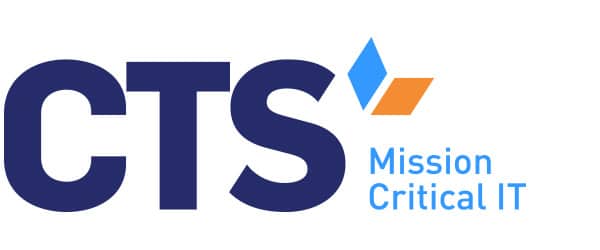All modern organizations rely heavily on technology to deliver their services, products, and meet customer service demands. However, maintaining a reliable, efficient IT infrastructure can be a complex and resource-intensive challenge. Operational inefficiencies such as system downtime, misaligned processes, and outdated technology often hinder productivity and impact a company’s bottom line.
This is where managed IT services come into play. By outsourcing IT operations to dedicated experts, businesses can ensure their systems run smoothly and securely while focusing on their core objectives.
But how exactly do managed IT services enhance operational efficiency, and why should you consider them a critical part of your business strategy?
What is Operational Efficiency?
Operational efficiency refers to the ability of an organization to deliver high-quality products or services while minimizing wasted resources — time, money, and effort. It’s a cornerstone of business success, influencing everything from customer satisfaction to profitability.
But achieving and maintaining efficiency can be an uphill battle, especially for organizations struggling with technological complexities.
Common challenges include:
- System Downtime: Unexpected outages can halt business operations, leading to lost revenue and frustrated customers.
- Outdated Technology: Legacy systems often fail to support modern business needs, slowing down workflows and exposing vulnerabilities.
- Resource Misallocation: Without the right tools and expertise, businesses may waste valuable money and time spent on inefficient business processes.
Operational inefficiencies often stem from gaps in IT management, such as a lack of proactive maintenance or insufficient technical expertise. Managed IT services address these pain points by providing tailored solutions designed to optimize processes, enhance system reliability, and ensure resources are used effectively.
Achieving Operational Efficiency Through Managed IT Services
Managed IT services offer businesses a comprehensive approach to increase operational efficiency. By leveraging the expertise and tools of IT professionals, organizations can streamline processes and focus on their core objectives.
Managed IT providers use advanced monitoring tools to detect and address potential issues before they escalate. This proactive approach minimizes downtime, prevents costly disruptions, and ensures that systems remain reliable and secure. Regular updates and patches keep software and hardware running smoothly, reducing the risk of vulnerabilities.
One of the significant advantages of managed IT services is scalability. As a business grows or adapts to market changes, IT needs can fluctuate. Managed services allow organizations to scale resources up or down without investing heavily in new infrastructure or overburdening existing systems. This flexibility supports both operational stability and cost effectiveness.
Building an in-house IT team with a wide range of expertise can be cost-prohibitive for many businesses. Managed IT services provide access to a team of specialists with diverse skills, ensuring expert support for a variety of needs — from cybersecurity to cloud management — without the expense of full-time hires.
Automation is a powerful tool for enhancing efficiency. Managed IT providers implement automated solutions such as routine data backups, patch management, and system updates, freeing employees to focus on higher-value tasks. Streamlined workflows translate into better project management and fewer bottlenecks.
Managed IT services often include data analytics capabilities, enabling businesses to gather insights and optimize operations. By analyzing system performance, user behavior, and workflow patterns, companies can make informed decisions that enhance productivity and reduce waste.
Achieving Cost Efficiency Through Managed IT Services
Operational efficiency is closely tied to financial performance. Managed IT services can do more than improve productivity – they offer businesses significant cost-saving opportunities.
Traditional IT maintenance can be unpredictable and expensive, with costs fluctuating based on system failures and emergency repairs. Managed IT services operate on a fixed subscription model, allowing businesses to budget more effectively. Preventive maintenance further reduces the need for costly reactive measures.
With a managed IT provider handling day-to-day IT tasks, internal team members can concentrate on strategic initiatives. This improves time and resource utilization, directly contributing to business growth, rather than being consumed by troubleshooting and maintenance.
Managed IT services enable businesses to access cutting-edge technology and infrastructure without the need for upfront investments. Whether it’s leveraging cloud solutions or enhancing cybersecurity, organizations can benefit from the latest advancements without straining their budgets.
System downtime can lead to lost revenue, productivity, and customer trust. By ensuring reliable IT performance and rapid issue resolution, managed IT services minimize downtime and its associated costs.
Managed IT services deliver long-term value by aligning technology investments with business goals. The strategic use of IT resources ensures that every dollar spent contributes to continuous improvements in efficiency, security, and innovation.
Addressing Common Concerns of Managed IT Services
While the benefits of managed IT services are compelling, businesses often have reservations about outsourcing their IT operations.
Organizations worry about the safety of their sensitive information when entrusting it to a third party. Reputable managed IT providers prioritize cybersecurity by implementing strong protocols such as encryption, multi-factor authentication, and real-time threat monitoring. They also ensure compliance with industry standards like GDPR and HIPAA.
Some businesses fear that outsourced IT solutions come in a rigid, one-size-fits-all solution. However, many managed IT providers will offer tailored solutions. Providers work closely with clients to understand their industry, workflows, and challenges, creating strategies and systems that integrate seamlessly with existing processes.
Another concern is the perceived loss of control over IT operations. In reality, managed IT services enhance visibility and collaboration. With detailed reports, dashboards, and regular consultations, businesses maintain oversight while benefiting from expert guidance and execution.
Operate at Peak Efficiency with Expert Managed IT Services
The role of IT in modern business is critical, and managed IT services ensure that organizations can harness the full potential of technology without being bogged down by its complexities. From proactive maintenance to data-driven decision-making, the benefits are tangible and far-reaching.
At CTS, we specialize in providing managed IT services that address your business’s specific needs and challenges. Whether you’re looking to reduce costs, improve system reliability, or strengthen security, our team of experts is here to help.




